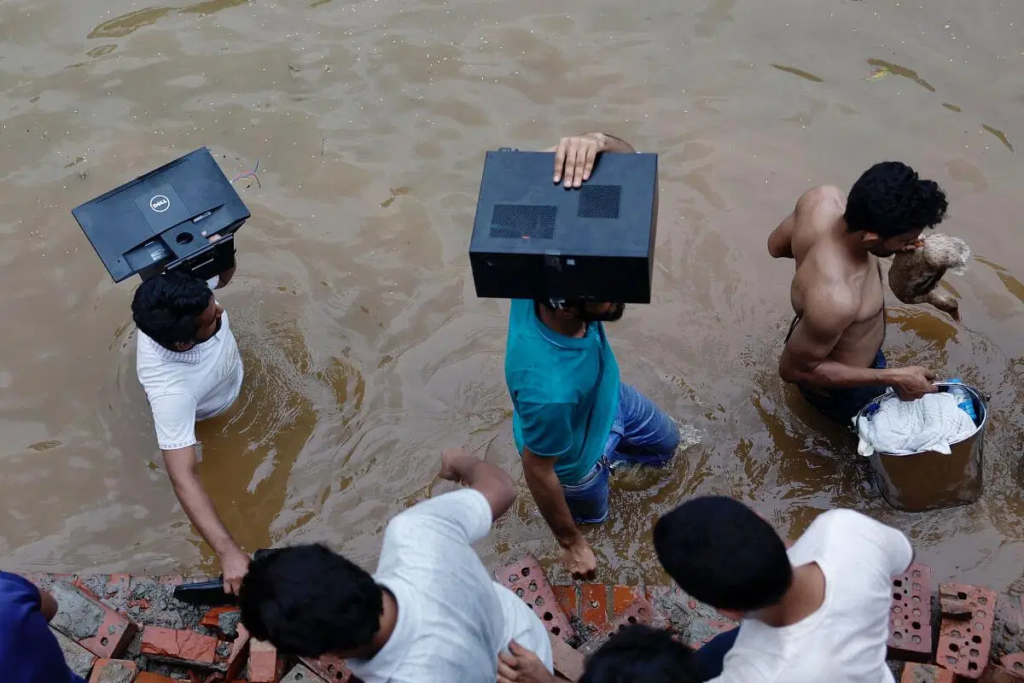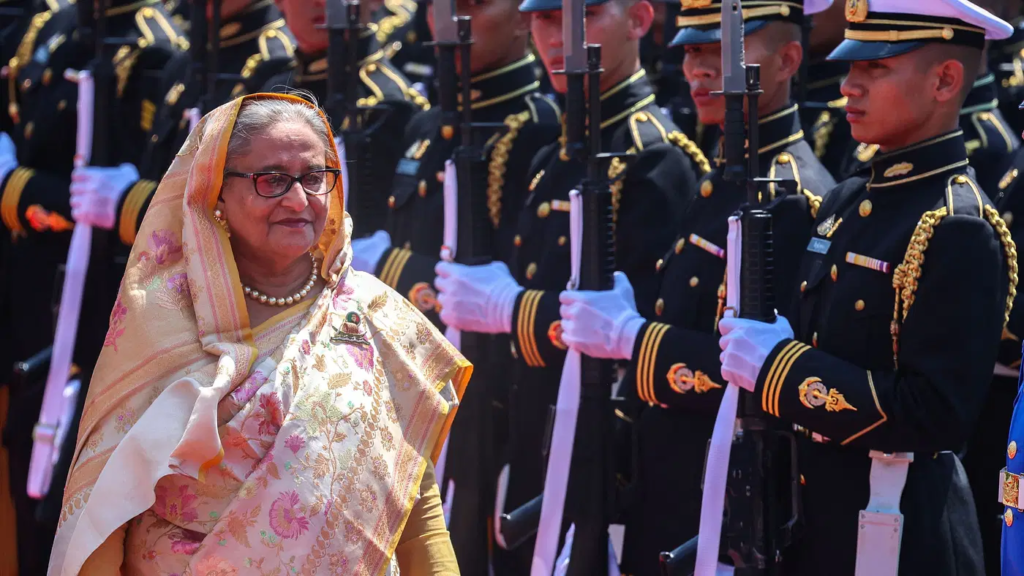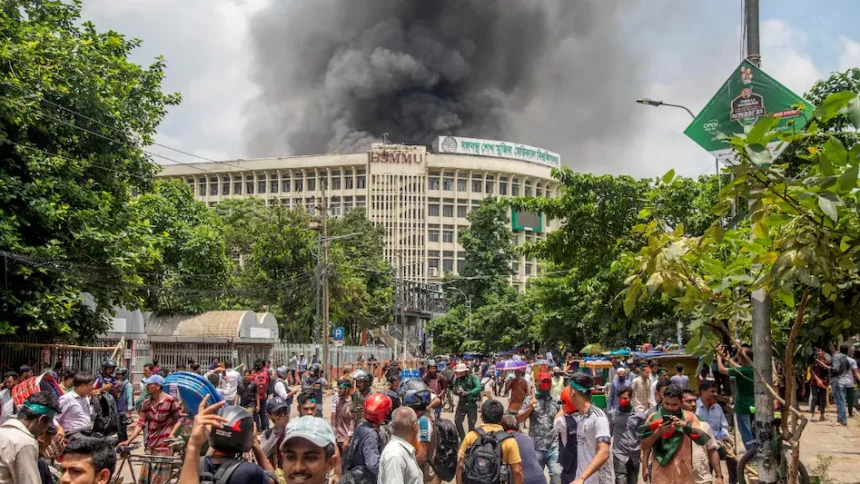In an unprecedented turn of events, thousands of protesters swarmed the residence of Bangladesh’s Prime Minister, Sheikh Hasina, following her resignation and flight from the country. The dramatic scenes unfolded as crowds made off with furniture, bedding, potted plants, and even animals, marking a chaotic moment in Bangladesh’s political landscape.
Unrest and Looting at the Prime Minister’s Residence in Bangladesh

Videos and live broadcasts captured the chaos as people scaled the gates of the Prime Minister’s residence, vandalizing property, smashing portraits, and helping themselves to food left behind. Many were seen celebrating, with raised hands and jubilant expressions, documenting the moment on their cell phones.

Among the looters was Monsur Ali, a garment worker, who described the crowd’s anger and frustration as they took items from the residence. “We went there out of anger,” Ali said. “Nothing is left there.”

Social media and television footage also showed individuals taking chickens, ducks, and rabbits from the residence, with some posing for photos with the animals.
Protests Against Authoritarianism and Government Jobs
The unrest leading to Hasina’s resignation began as protests over coveted government jobs, which escalated after government security forces responded with deadly force, resulting in nearly 300 reported deaths. The demonstrations quickly grew into a broader movement against Hasina’s perceived authoritarianism after 15 years in power.
Hasina’s Departure and the Formation of an Interim Government
Sheikh Hasina, 76, has reportedly fled to India, where she was granted safe passage by the Indian government, according to CNN News18. In response to the political upheaval, Bangladesh’s army chief announced the formation of an interim government to restore stability.
The turmoil has also impacted neighboring regions, with India suspending train services with Bangladesh and Meghalaya imposing a night curfew along its border due to the unrest.
Nationwide Turmoil and Response

The protests have reached significant landmarks in Bangladesh, with demonstrators vandalizing a statue of Sheikh Mujibur Rahman, the country’s founding father. Protesters have also taken over Parliament, signaling the depth of the political crisis.
In response to the widespread unrest, Bangladesh’s military announced plans to lift a curfew to allow for a peaceful resolution and transition. The situation remains volatile, with international observers closely monitoring developments in the region.

The unfolding events in Bangladesh highlight the complexities and challenges of political transitions in times of crisis, as the nation grapples with its future direction amidst calls for reform and accountability.









